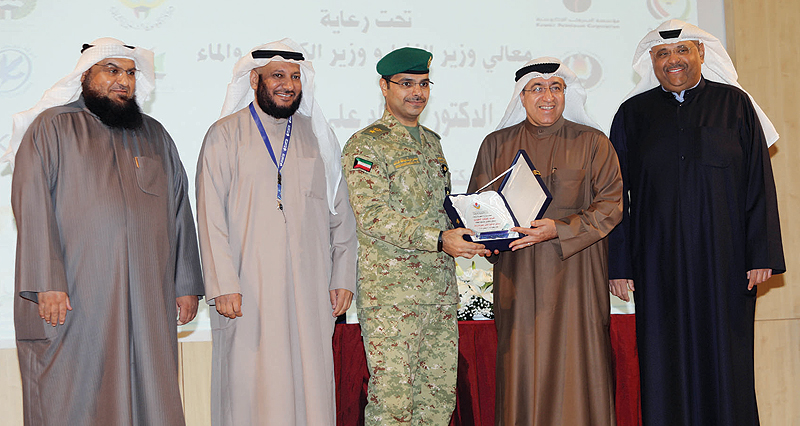Minister to receive final investigation report on heavy rain damage tomorrow

Kuwait National Guard in the ministry’s second conservation forum. — Photo by Joseph Shagra
KUWAIT: The Ministry of Electricity and Water (MEW) plans to privatize Shuaiba northern power plant as part of its annual development plan for 2018-2019, said informed sources. The sources added that the privatization plan aims at improving infrastructure and quality, in addition to being in step with the state's plans to restructure the role played by MEW in economic activities by turning it from a producer and operator to a regulator and supervisor with the ultimate goal of achieving sustainable non-oil economic growth.
Meanwhile, MEW undersecretary Mohammed Bushehri said power plants had consumed fuel worth KD 1.3 billion in 2017, including 55.9 million barrels of liquid fuel and 374.9 billion cubic meters of natural gas. Speaking during a ceremony held to launch the second conservation forum organized by the ministry, Bushehri stressed MEW is keen on taking serious measures to execute the state's long-term plan to meet its developing and growing needs of electricity and water.
Rain damage
Well-informed sources said that the committee formed to investigate damages resulting from the recent heavy rain will hand over its final report to Minister of Public Works and Minister of State for Housing Affairs Jenan Bushehri tomorrow pending referral to the Cabinet. The sources added that the report includes all malfunctions and suggests solutions to prevent repeating the same problems. It also determines the reasons of loose gravel on various roads and sets remedies. The sources said the committee also discussed the problems at Sabah Al-Ahmad City, adding that the committee had questioned over 100 senior officials, technicians, employees and company officials during the investigation.
Increase rejected
The Civil Service Commission (CSC) rejected a request by the Ministry of Education to increase allowances given to Kuwaiti teachers of subjects in which they are considered rare to over 30 percent. The CSC explained that it had previously agreed to consider Kuwaiti teachers, as well as those from the GCC, forming 30 percent or less in any given subject as "rare". Notably, rare Kuwaiti teachers are those teaching English, French, Maths, Science, Biology, Physics and Chemistry.
By A Saleh

